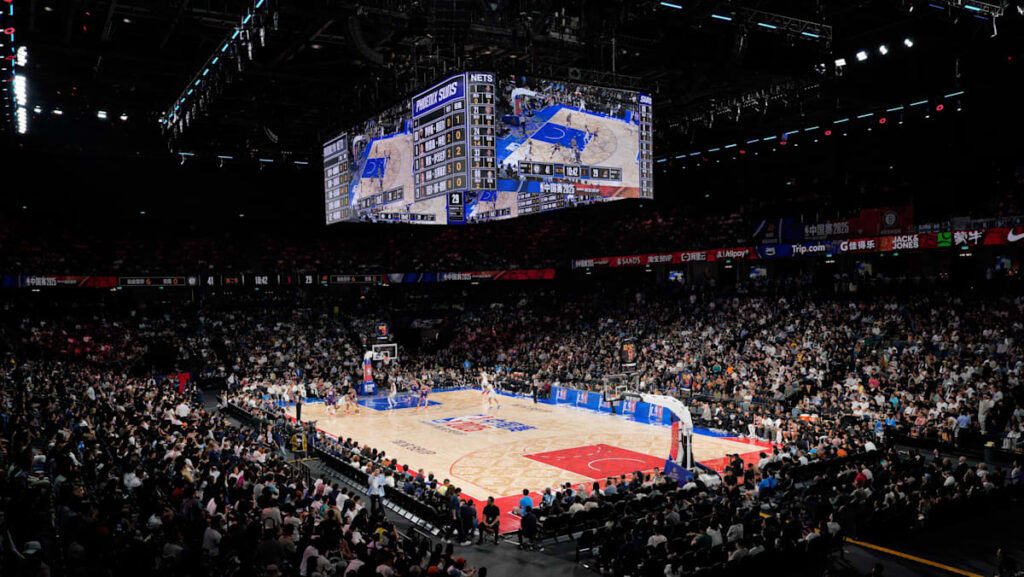2019 FLASHPOINT
One of the most successful cultural exports from the US, the NBA transformed basketball into a worldwide phenomenon and is hugely popular in China.
But a crisis arose in 2019 over a tweet. That October, then-Houston Rockets general manager Daryl Morey tweeted his support for Hong Kong protesters.
Although it was quickly deleted, Morey’s tweet triggered a wave of condemnation in China. Beijing’s reaction was swift and severe – suspending broadcasts of NBA matches and prompting Chinese sponsors to cut ties, costing the league hundreds of millions of dollars in lost revenue.
Public opinion turned and the NBA soon found itself caught up in geopolitical fault lines.
Ardent basketball fan Jimmy Zhang from Shanghai has followed the league for more than 20 years, admiring NBA stars like Yao Ming and Jimmy Butler while rooting for teams like the Golden State Warriors.
Zhang, who once served in the Chinese military, found Morey’s actions deeply offensive.
“Those comments felt completely disrespectful,” Zhang told CNA.
“I made my stance clear,” Zhang said. “I stopped reading or watching anything (to do with Morey). I refused to give him attention.”
He added: “I’m 36, and many people my age, guys I used to play basketball with, barely follow basketball anymore. For fans in their 30s and 40s, family and work have taken priority, so some (lost interest) especially after the NBA disappeared from Chinese TV for a while.”
Before the controversy, the NBA was hailed as a model of success in China. Experts said it enjoyed two decades of regular preseason games, a growing Chinese fan base, and one of the largest overseas commercial ecosystems of any global sports league.
“They were the textbook case of success in China,” Dreyer said. “Up until 2019, the NBA was absolutely the gold standard, at least in the sports world, on how to do well in China.”
Considerable damage was done in 2019, Dreyer said, adding that the league’s own communication strategy over the incident had worsened the crisis.
In the days after the offending tweet, the NBA issued an English statement expressing “great respect for the history and culture of China”, while the league’s Chinese-language statement included the phrase “hurt the feelings of Chinese fans” – drawing bipartisan criticism in Washington, where both Democrats and Republicans accused the NBA of prioritising its commercial interests over free expression and human rights.
On the other hand, Chinese officials denounced it for falling short of a full apology.
“American fans thought the NBA was being far too submissive towards the Chinese government. The Chinese government clearly didn’t think they were being nearly apologetic enough. So effectively, they (angered) both sides.”
Read the full article here

